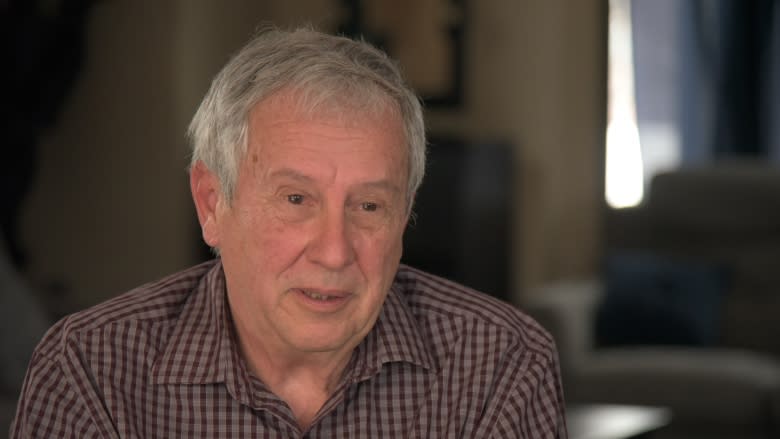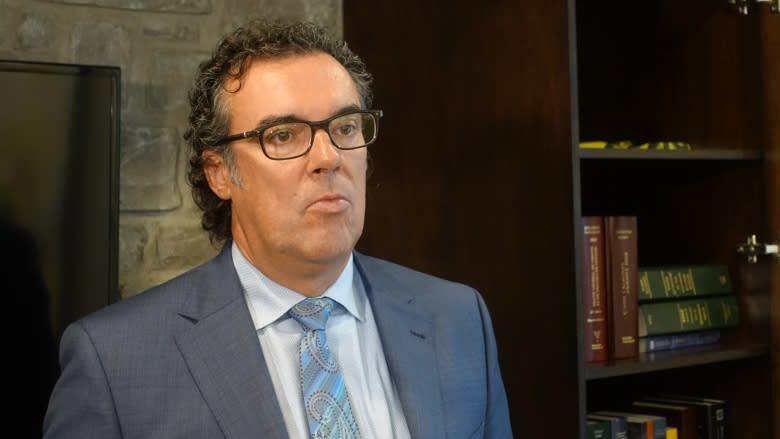UN pushing Canada to compensate Quebec man tortured in Mexico
The United Nations Committee Against Torture is asking the Canadian government to explain why it still hasn't acted on an order to compensate a Quebec man tortured in a Mexican prison.
In 2011, the Committee determined Canada had violated the UN Convention against Torture when it extradited Régent Boily to Mexico.
The committee wrote to the government of Justin Trudeau this summer after receiving a complaint from Boily's lawyers, who said Canada has yet to act on the order seven years after it was issued.
"The situation is very urgent: Mr. Boily is now 74, and every day lives with the serious effects of the torture he suffered at the hands of the Mexican authorities after Canada irresponsibly sent him back there to face a serious risk of torture," according to a letter from lawyers Michel Swanston and Christian Deslauriers.
The letter, written in French, was sent on July 18, 2018.
In a response to Swanston dated Aug. 7, Ibrahim Salama, the head of the committee's human rights treaties section, promises to forward the complaint to the Canadian government.
The Department of Justice confirmed to Radio-Canada that it did receive the follow-up submission and that it intends to respond to the Committee.
Repeatedly submerged
Boily, who hails from Gatineau but now lives in the Montreal area, was freed in December 2017 after spending over 10 years in Mexican prisons.
In an exclusive interview broadcast in March 2018, Boily told Radio-Canada prison guards repeatedly held his head in a barrel of water.
"I saw little swimming creatures," Boily said in French. "I felt things go into my mouth. It's the worst kind of agony a human being can endure. Every time I went under I thought I would die."
It was the former government of Stephen Harper that extradited Boily at Mexico's request in 2007. He'd escaped from a Mexican prison years earlier while serving a sentence for marijuana trafficking. During the escape, a prison guard was killed by one of Boily's accomplices.
Boily suing for $6M
The UN Committee against Torture concluded in 2011 that Canada shouldn't have extradited Boily, and that it should compensate him. The committee also recommended Canada review its system of diplomatic assurances.
At the time of Boily's extradition, Mexico pledged to protect his rights.
The Harper government didn't act on the committee's decision. The Trudeau government is now left with the file, but seems no more inclined to act than did its predecessor.
In a written response to Radio-Canada's questions, Department of Justice spokesperson Angela Savard said: "Mr. Boily has chosen to launch a lawsuit against Canada, as is his right. Canada is defending against the lawsuit, and as such is not in a position to further comment as the case remains before the courts. The Government of Canada does not intend to compensate Mr. Boily."
Boily is suing the government for $6 million in damages, but has already indicated to the government that he's prepared to settle the case out of court.
Lawyer outraged
Swanston is outraged by the government's response.
"'When Canada loses, we're going to put that under the carpet and not respect the judgment.' That's what our Department of Justice is saying at this point. What type of example does this give to Canadians? That you just don't have to respect judgments?" he asked in an interview. "That's the type of behaviour we're used to seeing from Donald Trump. It's completely un-Canadian."
Regarding the committee's recommendation that Canada review its system of diplomatic assurances, the government remains non-committal.
"Canada regularly reviews its procedures with respect to diplomatic assurances," wrote Global Affairs Canada spokesperson John Babcock, who said Canada must take into account both developments in domestic law and international obligations before making such decisions.
"The negotiation of diplomatic assurances is done on a case-by-case basis," Babcock said.
According to experts reached by Radio-Canada, even if Canada isn't legally obligated to act on the committee's decisions, the government still has a moral obligation as a signatory to the UN Convention against Torture.
The Committee against Torture is composed of 10 independent experts who monitor the implementation of the Convention against Torture and Other Cruel, Inhuman or Degrading Treatment or Punishment by its state parties, including Canada.



